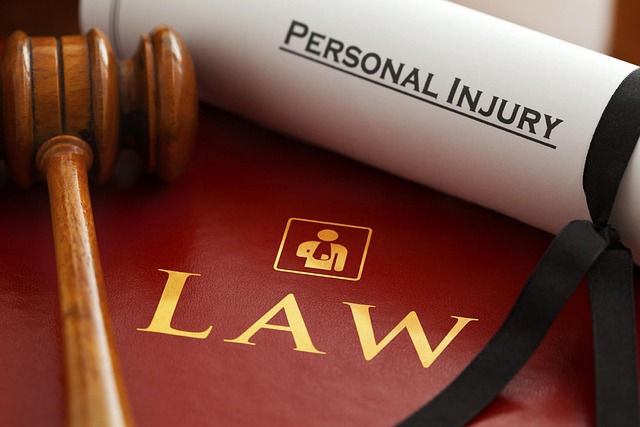Consumer protection laws safeguard individuals from fraud and unethical business practices, with the Securities and Exchange Commission (SEC) playing a pivotal role in securities law enforcement. The SEC leverages investigations, guidelines, and legal actions to maintain market integrity. Businesses must comply to avoid legal repercussions and foster trust, while consumers benefit from informed decisions and redress. The SEC's proactive approach, demonstrated in cases like SEC v. Enron and US v. Microsoft, ensures accountability, fair competition, and protection for both corporations and individual clients.
Consumer protection suits are a crucial aspect of safeguarding individuals from fraudulent practices. This article delves into the intricate world of consumer rights, focusing on securities fraud and investor protection. We explore the fundamental role of the Securities and Exchange Commission (SEC) in enforcing securities laws, highlighting its impact on market integrity. Through case studies, we demonstrate the significant legal remedies available to investors and offer strategic insights for businesses to navigate compliance, thereby minimizing the risk of suits.
- Understanding Consumer Protection Laws
- The SEC's Role in Enforcing Securities Fraud
- Protecting Investors: Legal Remedies Available
- Strategies for Businesses to Comply and Avoid Suits
- Key Case Studies: High-Profile Consumer Protection Suits
Understanding Consumer Protection Laws

Consumer protection laws are designed to safeguard individuals from unfair practices and ensure they receive accurate information when making purchases. These regulations cover a wide range of products and services, including financial investments, goods sold in retail stores, and online transactions. The Securities and Exchange Commission (SEC) plays a pivotal role in securities law enforcement, acting as a watchdog to protect investors from fraud and manipulation. By conducting investigations, issuing guidelines, and bringing legal actions, the SEC helps maintain integrity in the markets.
Understanding these laws is crucial for both consumers and businesses. Consumers can use their knowledge to make informed decisions, file complaints when necessary, and seek redress if they encounter any issues. Businesses, on the other hand, must ensure compliance to avoid indictment and the associated legal and financial consequences. A winning challenging defense verdict in consumer protection suits can be a game-changer for respective businesses, demonstrating their commitment to ethical practices and fostering trust with their customers.
The SEC's Role in Enforcing Securities Fraud

The Securities and Exchange Commission (SEC) plays a pivotal role in enforcing securities fraud laws, acting as a guardian for investors. With its broad enforcement powers, the SEC has the authority to conduct investigations, issue subpoenas, and bring civil actions against individuals and entities suspected of fraudulent activities. The commission’s primary focus is on protecting investors and maintaining fair markets by ensuring that public companies disclose accurate and complete information.
In cases of securities fraud, the SEC often works towards resolving matters through settlements, which can result in substantial penalties for violators. While some cases may be resolved without going to trial, achieving extraordinary results for his clients through jury trials remains a significant aspect of the SEC’s enforcement strategy. This approach ensures that wrongdoers are held accountable and serves as a deterrent for potential future violations.
Protecting Investors: Legal Remedies Available

The Securities and Exchange Commission (SEC) plays a pivotal role in protecting investors by enforcing securities laws across the country. When companies or individuals engage in fraudulent activities, the SEC steps in to provide legal remedies for aggrieved investors. These remedies are designed to not only compensate victims but also deter future misconduct.
Through its robust white collar defense mechanisms, the SEC has established an unprecedented track record of holding wrongdoers accountable. By utilizing a range of tools, including civil lawsuits, administrative proceedings, and criminal prosecutions, the commission ensures that market integrity is maintained and investors are safeguarded from unethical practices.
Strategies for Businesses to Comply and Avoid Suits

Businesses must adopt proactive strategies to ensure compliance with consumer protection laws and avoid potential lawsuits. One key aspect is staying informed about changing regulations, especially in dynamic industries like finance, where the Securities and Exchange Commission (SEC) plays a vital role in securities law enforcement. By understanding the SEC’s guidelines and expectations, companies can mitigate risks. This includes clear and transparent communication with corporate and individual clients, ensuring marketing materials are accurate and not misleading. Regular training for employees on ethical practices and consumer rights is essential to foster a culture of compliance.
Additionally, businesses should implement robust internal controls and data security measures to protect consumer information. Proactive monitoring of market trends and competitor strategies can help anticipate potential issues. For high-stakes cases, having a well-prepared defense strategy, including gathering relevant evidence and expert opinions, is crucial. Winning challenging defense verdicts not only protects the business but also serves as a deterrent for future violations, demonstrating the company’s commitment to ethical practices.
Key Case Studies: High-Profile Consumer Protection Suits

In the realm of consumer protection, high-profile suits have played a pivotal role in shaping business practices and safeguarding rights. Case studies such as SEC v. Enron stand out as powerful examples of the Role of SEC in Securities Law Enforcement. This landmark case not only highlighted the energy industry’s complexities but also underscored the SEC’s ability to achieve extraordinary results in holding wrongdoers accountable. By securing a complete dismissal of all charges against key figures, this suit set a precedent for future enforcement actions.
Another notable instance is US v. Microsoft, which addressed antitrust concerns and monopolistic behavior. The outcome of these cases has been instrumental in fostering fair competition and protecting consumers from corporate misconduct. The success in such high-stakes litigation not only compensates affected individuals but also serves as a deterrent, encouraging businesses to uphold ethical standards and serve their customers honestly. These landmark suits showcase the effectiveness of legal strategies in achieving justice and ensuring consumer protection, benefiting both corporate and individual clients alike.
Consumer protection laws are vital for ensuring fair practices in the market, safeguarding investors, and fostering trust. By understanding these regulations and the crucial role of bodies like the SEC in securities law enforcement, businesses can implement effective strategies to comply and mitigate potential suits. This comprehensive overview highlights the importance of transparency, disclosure, and investor education, leaving a strong legacy of protection for all participants in the financial landscape.






